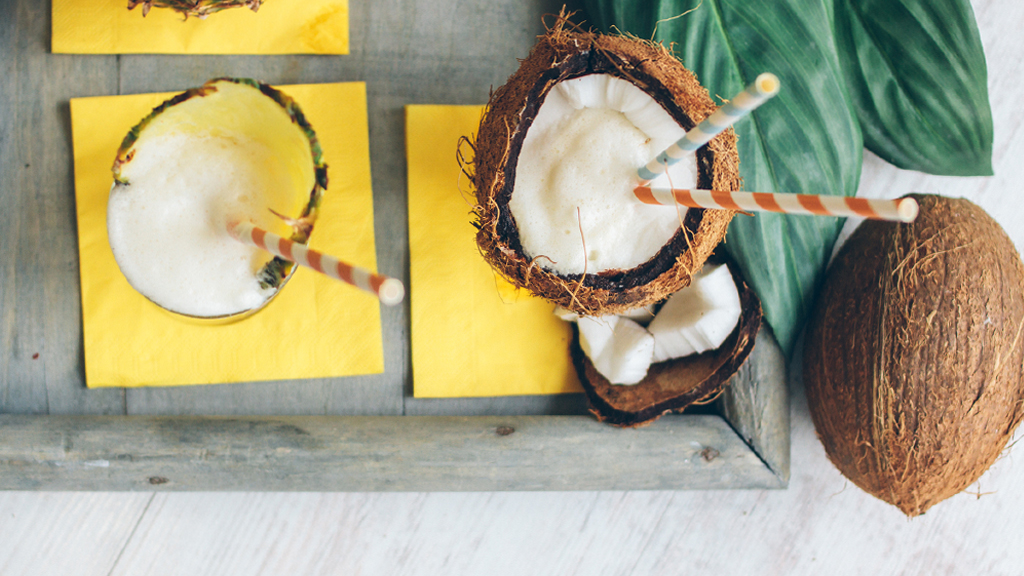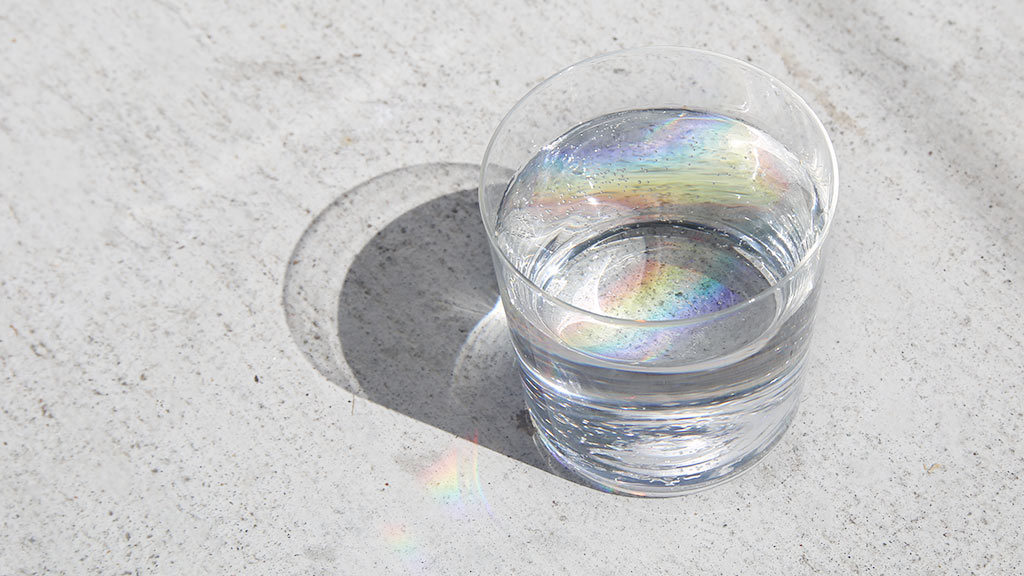Nourish
IS COCONUT REALLY THE WONDER-FOOD EVERYONE SAYS IT IS?
After being banished as a “bad” fat in the 80s and 90s, coconut is suddenly being touted as a wonder ingredient. It’s been linked to everything from weight loss to healthier hearts, and as a consequence we’re seeing it everywhere, from the produce department to the milk and yogurt aisle to the beauty counter.
While we’re 100% on board with coconut oil as body and hair savior (this amazing stuff is so popular we can barely keep it in stock!), we’re always a bit weary of anything that’s suddenly being sold as a cure-all in our diets. So we decided to to a deep dive of our own. How healthy is coconut, really? Here’s what we found out.
Is coconut oil really better for me than other oils?
While coconut oil is mostly saturated fat, there is some research to suggest that it’s less harmful than other oils that are more highly processed. Some studies show that coconut oil also gives “good” HDL cholesterol a boost—something other saturated fats can’t do. And while coconut oil doesn’t have the same scientific evidence to support health claims as olive oil, many experts agree that it’s a fine food to eat in moderation.
But remember, the American Heart Association recommends that anyone who has high cholesterol minimize all saturated fats, so keep that in mind if needed.
There’s such a huge range in price for coconut oils. Are they all created equal?
In a word, no. The benefits listed above are strictly limited to virgin varieties of coconut oil, which are not chemically treated. Some coconut oils are highly processed, which strips away many of the natural benefits.
What’s the best way to cook with coconut oil?
Unrefined coconut oil is best used for medium- or low-heat sautéing and when baking at 350F degrees or below. And it’s excellent for creating desirable texture in no-bake recipes like the B3 Energy Bars and the B3 Cookie since it solidifies when chilled or at room temperature and helps to create the texture you want.
Is canned coconut milk an acceptable substitute for cream in cooking?
While mostly fat and water, canned coconut milk adds delicious flavor and a nice creamy texture to a wide range of recipes including curries, soups, puddings, and desserts.
How about coconut meat: good for me, or not so much?
It’s not exactly a wonder-food, but whole coconut does contain some fiber and a small amount of protein. This is true in both coconut chunks or shreds.
When it comes to non-dairy milks, is coconut milk the way to go?
Refrigerated coconut milk, while refreshing and mild tasting, doesn’t contain much nutrition on its own, though it’s often fortified with calcium and Vitamin D.
Is coconut water as good for hydration as everyone says?
Coconut water is mild in flavor and high in potassium, which makes it a great option for post-workout recovery or as the liquid in a smoothie. Just make sure to check the label for added sugar.
After being banished as a “bad” fat in the 80s and 90s, coconut is suddenly being touted as a wonder ingredient. It’s been linked to everything from weight loss to healthier hearts, and as a consequence we’re seeing it everywhere, from the produce department to the milk and yogurt aisle to the beauty counter.
While we’re 100% on board with coconut oil as body and hair savior (this amazing stuff is so popular we can barely keep it in stock!), we’re always a bit weary of anything that’s suddenly being sold as a cure-all in our diets. So we decided to to a deep dive of our own. How healthy is coconut, really? Here’s what we found out.
Is coconut oil really better for me than other oils?
While coconut oil is mostly saturated fat, there is some research to suggest that it’s less harmful than other oils that are more highly processed. Some studies show that coconut oil also gives “good” HDL cholesterol a boost—something other saturated fats can’t do. And while coconut oil doesn’t have the same scientific evidence to support health claims as olive oil, many experts agree that it’s a fine food to eat in moderation.
But remember, the American Heart Association recommends that anyone who has high cholesterol minimize all saturated fats, so keep that in mind if needed.
There’s such a huge range in price for coconut oils. Are they all created equal?
In a word, no. The benefits listed above are strictly limited to virgin varieties of coconut oil, which are not chemically treated. Some coconut oils are highly processed, which strips away many of the natural benefits.
What’s the best way to cook with coconut oil?
Unrefined coconut oil is best used for medium- or low-heat sautéing and when baking at 350F degrees or below. And it’s excellent for creating desirable texture in no-bake recipes like the B3 Energy Bars and the B3 Cookie since it solidifies when chilled or at room temperature and helps to create the texture you want.
Is canned coconut milk an acceptable substitute for cream in cooking?
While mostly fat and water, canned coconut milk adds delicious flavor and a nice creamy texture to a wide range of recipes including curries, soups, puddings, and desserts.
How about coconut meat: good for me, or not so much?
It’s not exactly a wonder-food, but whole coconut does contain some fiber and a small amount of protein. This is true in both coconut chunks or shreds.
When it comes to non-dairy milks, is coconut milk the way to go?
Refrigerated coconut milk, while refreshing and mild tasting, doesn’t contain much nutrition on its own, though it’s often fortified with calcium and Vitamin D.
Is coconut water as good for hydration as everyone says?
Coconut water is mild in flavor and high in potassium, which makes it a great option for post-workout recovery or as the liquid in a smoothie. Just make sure to check the label for added sugar.










0 people have left a comment. Join the conversation!
View Comments